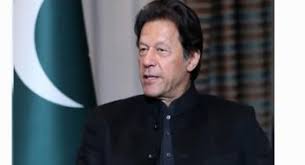Pakistan faces headwinds in its path to recovery: Report

Islamabad: Pakistan may have weathered the worst of storms, but would have to battle against brisk headwinds of political instability, policy inconsistency, challenging external environment, slow economy and rising inflation among other distractions in its path to recovery in 2020.
This was the conclusion of a report ‘Pakistan Outlook 2020: Politics, Economy & Security’ published by Islamabad Policy Institute (IPI). The report assessed Pakistan’s performance in various areas in 2019 and projected the likely future direction of events in 2020, besides looking at the potential challenges that could be encountered by the country. It brought together essays written by experts and former policy-makers on diverse subjects such as strategic environment, foreign policy, internal security, economy, and cyber security.
“The foremost challenge for the government in 2020 would be to bring stability to the political system. Uncertainty on the political landscape could impede governance and economic reforms,” the report said. It further noted that despite the government and the military appearing on the same page, managing civil-military relations would remain a major challenge this year.
Political Analyst Mr Farhan Bokhari believes that as long as party structures remain weak and led by families where the highest offices have passed on in a hereditary manner, political parties will remain inherently weak and unable to mature democratically. A key implication of this situation has been the failure to build sustainable internal structures within political parties for discussions on key policy issues.
The report forecasts that external environment would remain challenging this year with chances of limited conflict being imposed by India. It called on the government to pursue a regional approach to safeguard the nascent Afghan peace process from disruptions. It, moreover, observed that the defining foreign policy challenge will come from Middle East.
The report said that Pakistan would have to cautiously navigate the growing strategic competition between Beijing and Washington for safeguarding and advancing China Pakistan Economic Corridor.
Former Foreign Secretary Salman Bashir’s assessment is that “Instability and uncertainties at the local, regional and global level would continue to pose challenges to Pakistan’s diplomacy in the times ahead”. He called for a closer attention to “pervasive sense of paralysis and loss of direction compounded by fragmentation in thought and actions and a visible deterioration in established societal values”.
Former Defense Secretary Lt Gen (R) Asif Yasin Malik pointed out that Pakistan faces multidimensional threats ranging from conventional military to nuclear to proxies to Fifth Generation, which are both internal and external and also have complex interlinkages.
The report said that the implementation of reforms agenda agreed with International Monetary Fund will this year test decisiveness of PTI government and PM Khan on the economic front unlike anything in 2019.
It is projected that Pakistan’s GDP growth would remain close to 2.5% because of slowdown specifically in large scale manufacturing and agriculture sectors. Meanwhile, inflation would remain high hovering around 13%. Increase in power tariffs and higher oil prices could, however, cause inflation to shoot beyond these estimates. Furthermore it is anticipated that policy rates would be cut in 2020, because the current rates are unsustainable.
Economist Hussain Haider said that having repeatedly returned from the brink of economic collapse, it is high time Pakistan chooses a more sustainable model of economic growth as the country faces a ‘now or never’ situation.
“Needless to say this would require robust policy and implementation frameworks. The celebrated economic turnaround has been seen numerous times before and should ideally not be cause for rejoice. In 2020, fiscal reforms will determine the country’s fortunes. Pakistan must ensure that meritocracy, planning and education are given their due importance if it is to make its place on the world stage,” he maintained.
On the security front, the report said that terrorism by religiously motivated and ethno-nationalist groups would continue to pose a serious threat to internal security. The other major challenge for the LEAs would come from the cyberspace. Meanwhile, it cautioned that inimical forces would continue to exploit external vulnerabilities and internal discord and weaknesses, what is referred to as fifth generation warfare, to undermine stability.





